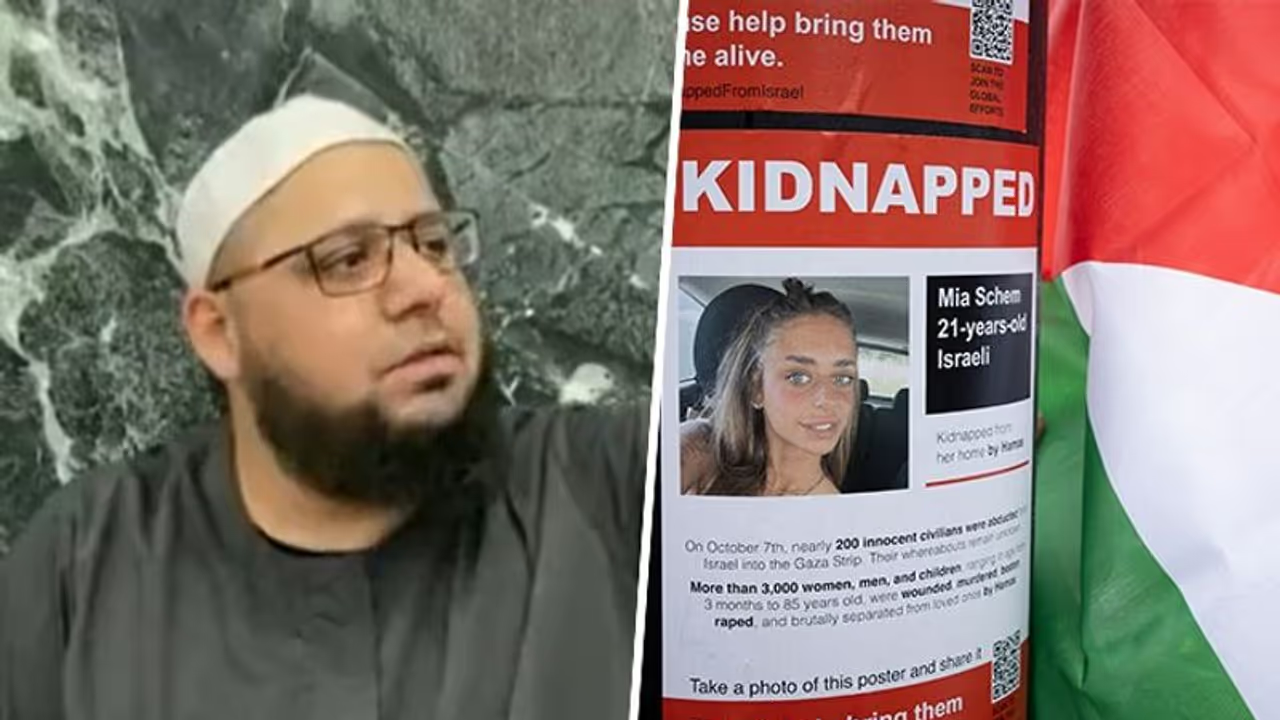"When it comes to 'innocent victims' the women that they shown... You never hear them talking about the men, talking about the soldiers. They always say, 'Women and children', 'women and children', 'women and children'," said Australian Islamic scholar Nassim Abdi amid Israel-Hamas war.
The Israeli-Palestinian conflict has been a complex and deeply rooted issue that has garnered international attention for decades. One voice in this contentious debate, even as the Israel-Hamas war in Gaza rages on, is that of Nassim Abdi, a prominent Islamic scholar from Australia, who has shared his perspective on the matter. In a speech that has gone viral on X, Abdi challenges certain narratives and highlights what he perceives as important nuances in the ongoing conflict.

Abdi begins by addressing the historical backdrop of the Israeli state's formation after World War II. He emphasizes that the international community allowed Jewish people to establish their homeland in what is now known as Israel, whereas it was referred to as Palestine. "The (Jewish) people after World War 2, regarding Hitler, the Nazis, and the so called oppression of the Jewish people, and the so-called Holocaust... They (international community) said: We will allow you to come back, and set up your place in what you call Israel, what we call Palestine," he said.
One of the key arguments Abdi presents is the usage of the term 'innocent victims' in media reports, suggesting that it oversimplifies the reality of the conflict. He argues that not all individuals involved can be considered innocent victims, as some may have knowingly settled in Israel, despite it being considered illegal under international law.
"When it comes to the media's response to October 7, one of the things that we already mentioned is the continued use of the words 'innocent victims'. Does anyone here want to see an innocent victim get hurt? Jewish or otherwise? No one wants to see a innocent victim get hurt. So they use always 'innocent victims', 'innocent victims'. These were not innocent victims, as we mentioned. These were people on the borders, these were army soldiers, they were people who were infuriating the Palestinian people. They were people who were there to cause problems, to provoke and to oppress (the Palestinians) by taking over their lands," the Australian Islamic scholar said.
He added, "There were people that made the choice to go back to Israel, and to get citizenship there and to live there, knowing that it is illegal under international law - they know that and they don't care. So do not say they are innocent victims, and if they had (done) nothing."
Abdi also highlights the portrayal of women in the media coverage of the conflict. He points out that the emphasis on 'women and children' as victims may be an attempt to evoke empathy from the audience. Furthermore, Abdi questions the depiction of individuals in the media and notes that the images presented tend to portray them as attractive and free individuals. He suggests that these images may be curated to garner international support.
"Secondly, when it comes to 'innocent victims' the women that they shown... You never hear them talking about the men, talking about the soldiers. They always say, 'Women and children', 'women and children', 'women and children'. Obviously, this is a soft spot in people's hearts. Which people did you see on the news? Did you see any ugly ones? Did they not show any ugly ones in the news? (This is) an honest question. There were no ugly women on the news. The October 7 victims looked like Victoria Secret supermodels. This is human psychology. They put these women there for what reason? To show you that we are beautiful women, we are free women. They put them there in their skimpy clothing. 'We are just like you in the West, we enjoy the same freedoms, the same liberal understanding as you guys. Help us, be with us, we are one against these savages, these beasts, against these inhumane people'," he said in the viral video.
Another point of contention in Abdi's speech is the portrayal of violence and alleged atrocities. He notes that there are millions of videos circulating, but he challenges the authenticity of claims regarding rape and torture, emphasizing that he has not seen evidence of such acts in the videos.
"You made the choice to live there, this is a consequence. They put up photos of them and act as if it is nothing. In the media, there are articles stating that they are taking these prisoners and they are raping them. There are millions and millions of videos (filmed on October 7) out there now. Which one of them showed rape? Which one of them showed torture to a person who was alive? Yes, 100 percent when a person was dead, we have seen them stepping on them. 100 percent we have seen that. That was decades and decades of anger," he concluded.
